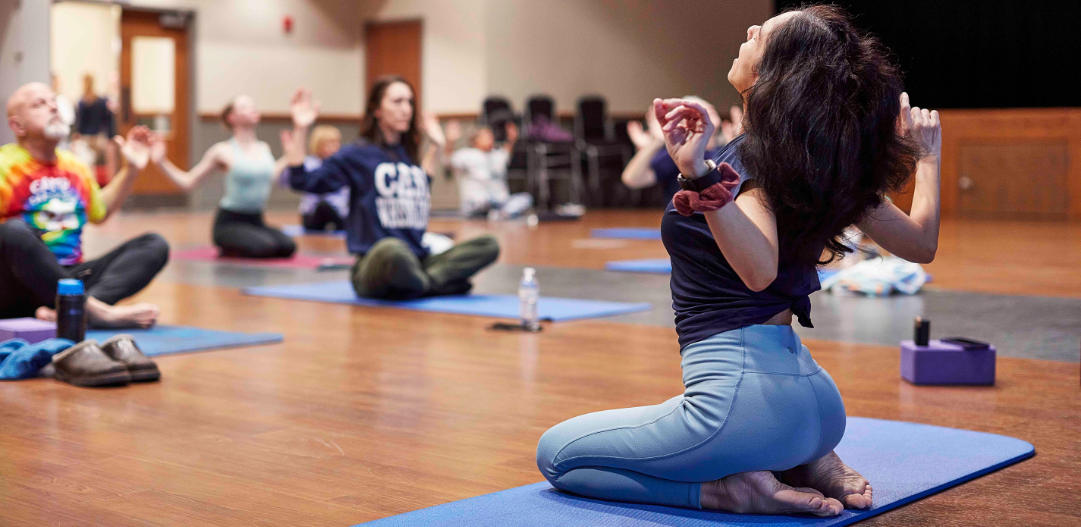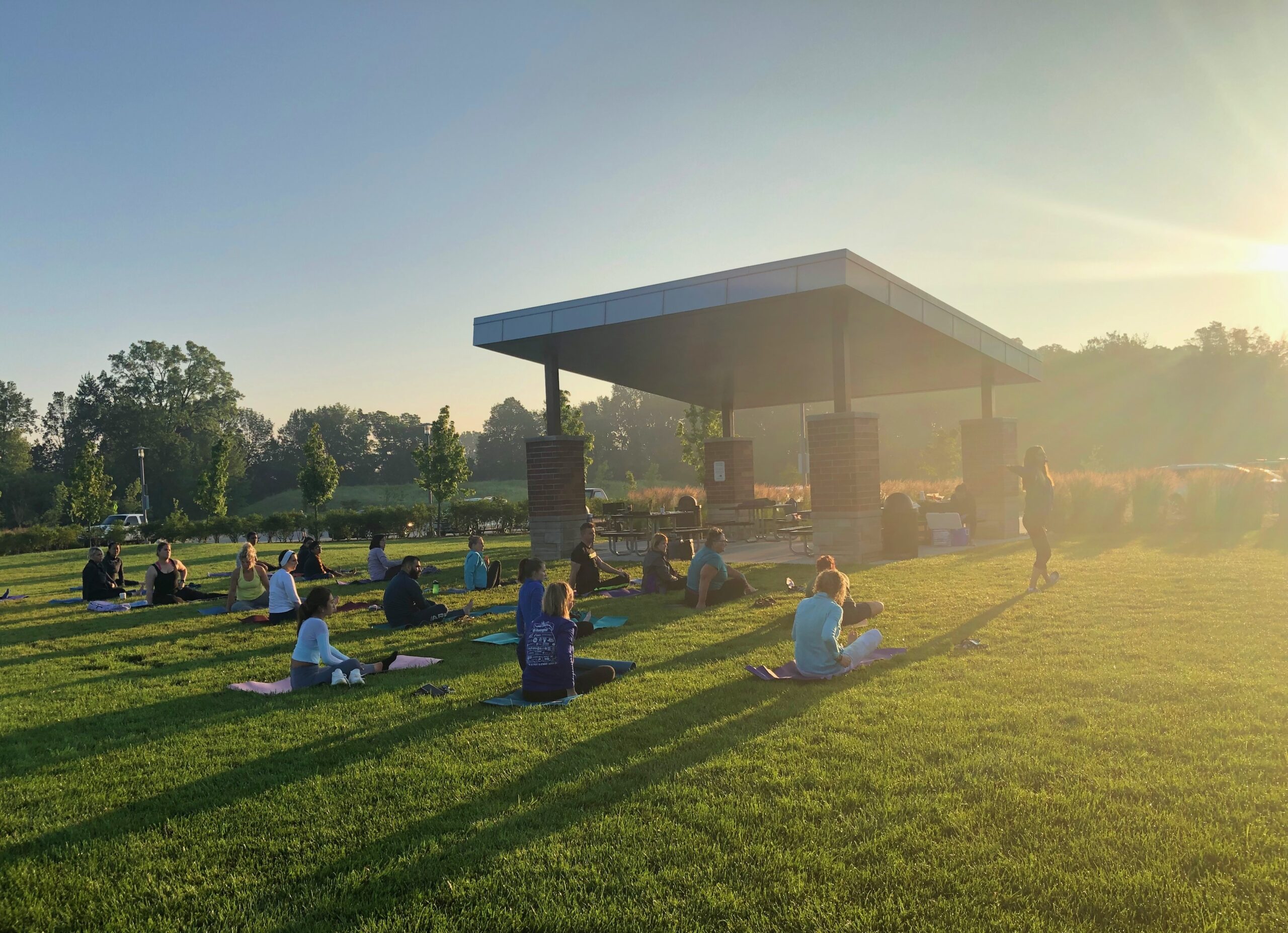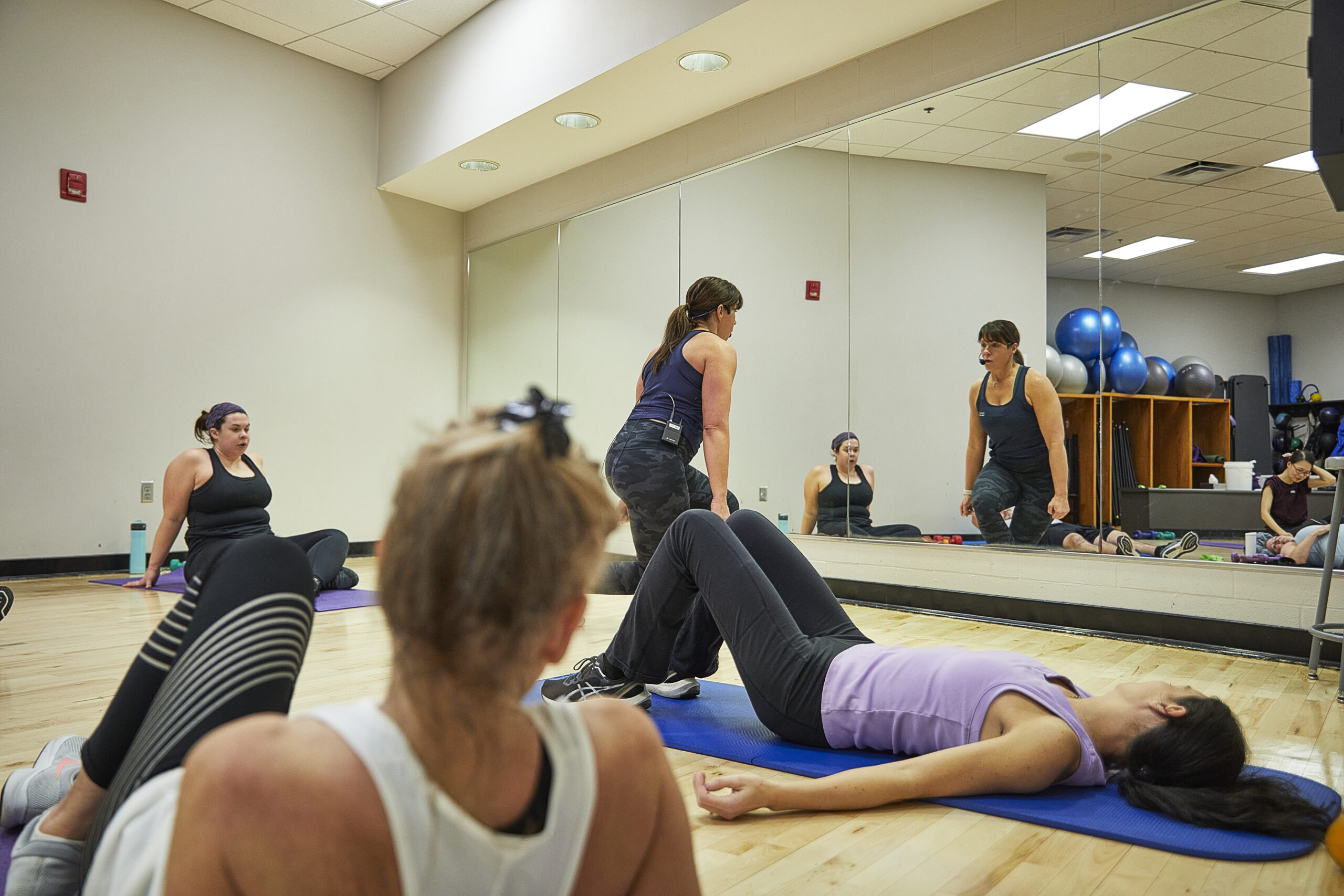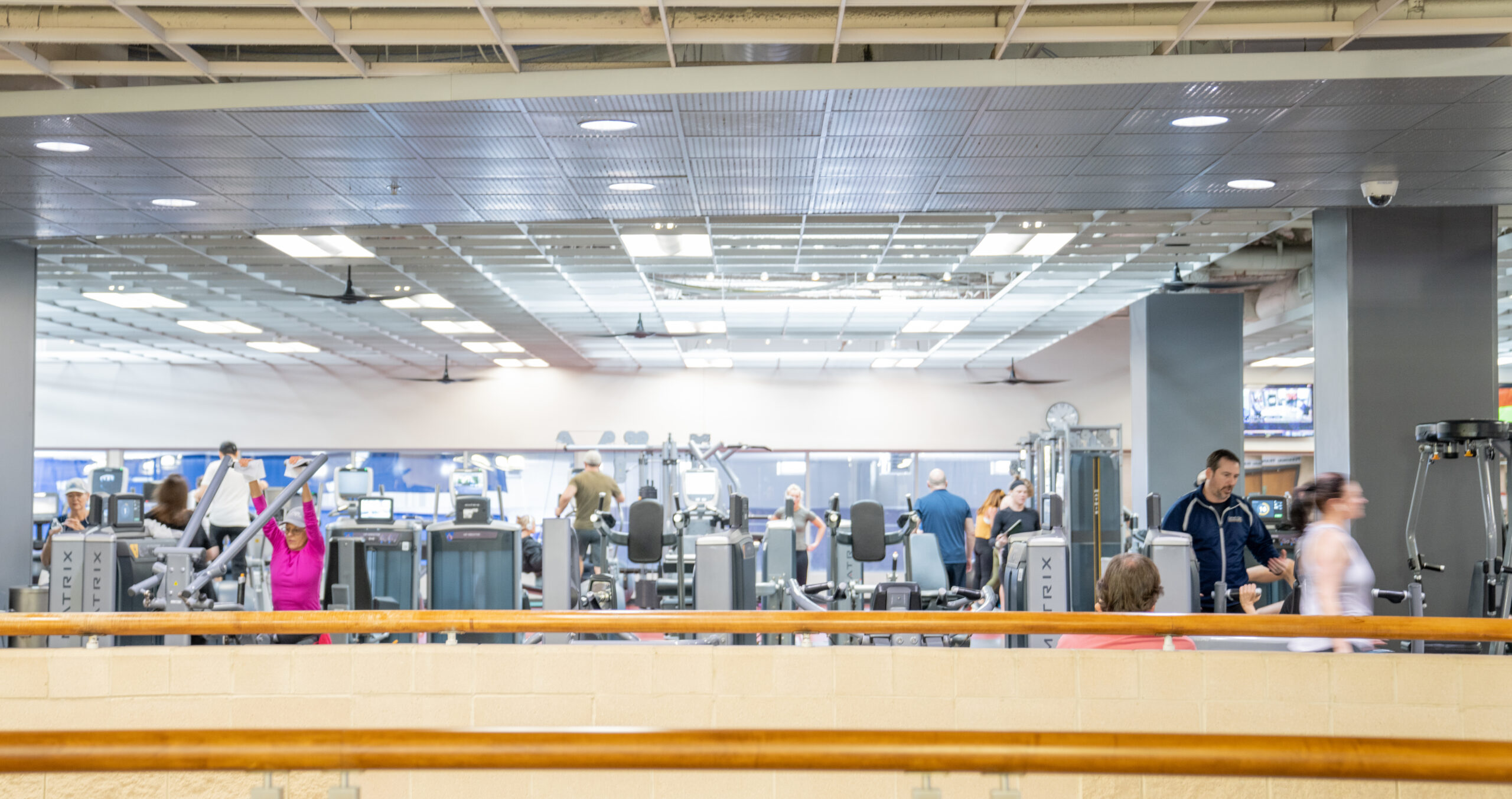
The importance of regular physical activity for full mind-body wellness
From strengthening your muscles to improving flexibility – there are many physical benefits to regular exercise. But what about its effect on our mental health?

Beyond the physical benefits, studies show exercise can also support your mental, emotional and social health. Keep reading to learn how staying active can support your mental health and how the Monon Community Center (MCC) can be your partner in health and wellness.
Table of Contents:
The benefits of staying active
How much of your day is spent sitting? It’s a large portion of the day for most adults, from commutes to desk work to binging the latest TV series. Unsurprisingly, a study found that our population averaged 7.7 hours a day of sedentary time (sitting, reclining or laying down).
It’s common knowledge that too much sedentary time is physically bad for us, but how does inactivity affect our brains?
One week of physical inactivity has the same effect on the mind as a week of poor sleep; feelings of anxiety and stress increase, while feelings of positivity, confidence, and overall well-being decrease.
When inactivity becomes a habit, it can also impact long-term brain function, making us feel less alert while feeling more sluggish and tired. If you’ve noticed it’s harder to meet deadlines at work or remember important dates it might be because you’re not getting enough exercise.
There are many barriers to physical activity. Luckily, the MCC provides members with the resources, convenience, and community support necessary to maintain mind-body wellness.

How does exercise affect our mental health?
Now that we know the negative effects of inactivity on our mental health, let’s talk about the positive effects of regular exercise.
Have you ever experienced a feeling of pure euphoria after going for a run on the indoor track? That’s called “runner’s high,” and it happens because when we exercise our bodies release endorphins, powerful chemicals in the brain that make us feel calm and relaxed.
 When we go a long time without exercising, our mind can become endorphin deficient, making it harder to feel positive emotions and cope with stress.
When we go a long time without exercising, our mind can become endorphin deficient, making it harder to feel positive emotions and cope with stress.
Moderate exercise reduces the risk of developing depression by 26 percent, breaking negative thought cycles, improving confidence, and encouraging social connection. If you’re in a slump, establishing a consistent exercise routine can break up your day-to-day and give you something to work toward.
Exercise provides a healthy outlet for nervous energy, helping regulate breathing and reduce muscle tension. Movement can also help you meditate. By focusing on the physical sensations of exercise (the feel of your feet hitting the pavement, the sensation of water, etc.), you can distract yourself from worries or stress.
A little goes a long way
It only takes 30 minutes of exercise per day to begin feeling these positive effects. And those 30 minutes don’t have to be consecutive. By taking a ten-minute walk in the morning, a ten-minute walk during your lunch break, and another ten-minute walk when you get home, you’ll have reached your daily goal.
Another low-impact exercise that’s easy to incorporate into your daily routine is swimming. A brisk 20-minute swim in our indoor pool can increase muscle mass and steadily increase your heart rate – all while keeping pressure off your joints.
Even little things, like taking the stairs over the elevator or vigorously vacuuming your living room, are all ways to make the most of your motion.

How can the MCC support your health? Here are some ideas:
Try a group fitness class: Try one of our group fitness classes to complete your 30-minute daily exercise goal all at once, as well as meet and connect with new people.
Walk on the Monon Greenway or indoor track: There’s no better way to lift your spirits than a walk. No matter the season, we have options to take your mind off your troubles while you get your steps in.
Strength train: Head to the fitness center for some strength training. Want to learn more about the physical and mental benefits? Check out our “The Benefits of Strength Training” blog to learn more!
Destress in the sauna: Each of our fitness center locker rooms has a sauna — warm, cozy, and stress-free. Do some gentle stretches to release built-up tension or bring your earbuds and meditate to soothing music.
Physical activity isn’t a cure-all, but moving your body in intentional, gentle ways can go a long way in bolstering your mental health. No matter the season, we have indoor and outdoor options to take your mind off your troubles while you get your steps in. We recommend the Monon Greenway or our indoor track at the MCC!

